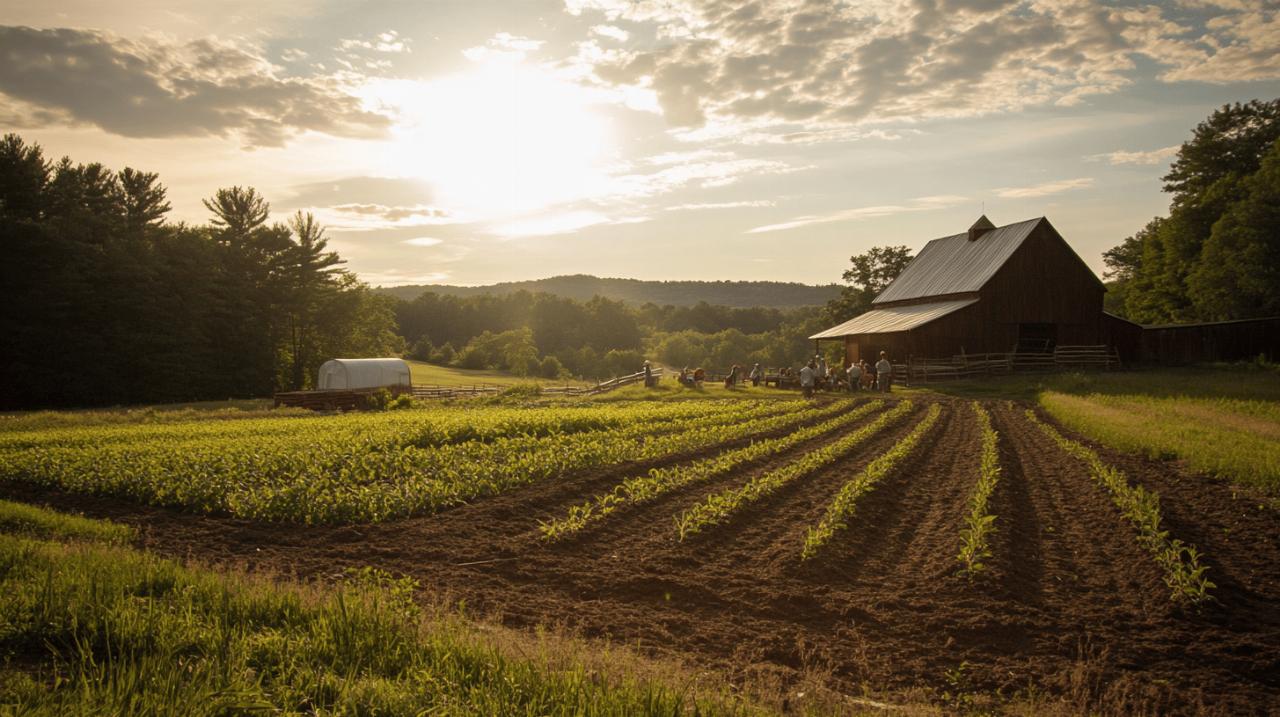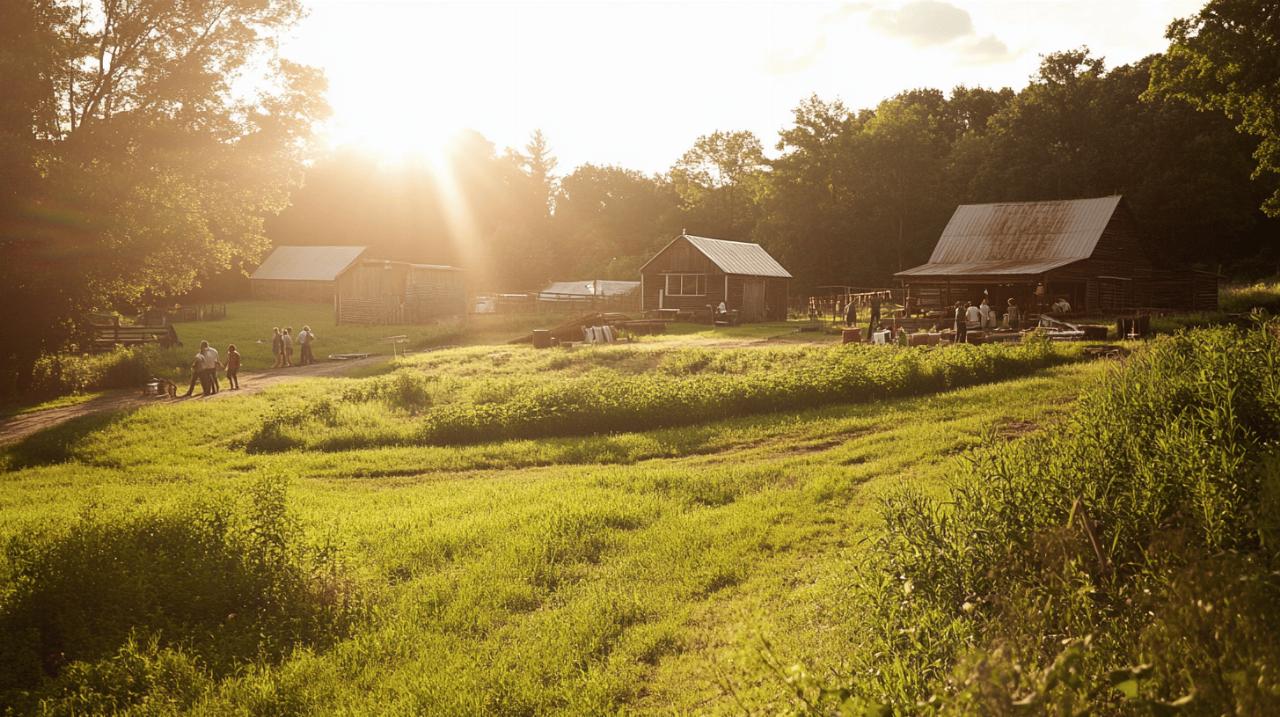The Complete Lowdown on Visa Regulations for Woofing USA Adventures
Woofing in the USA offers adventurous travelers a unique opportunity to immerse themselves in American rural life while contributing to sustainable agriculture practices. This volunteer exchange program has gained immense popularity among international visitors seeking authentic experiences beyond typical tourist attractions. Before packing your bags for American farms, though, understanding the legal requirements is essential to ensure a smooth and enjoyable stay.
Understanding woofing and its american appeal
What Exactly Is Woofing and Why Try It in the USA?
Woofing, which stands for Worldwide Opportunities on Organic Farms, represents a cultural exchange program where volunteers work on organic farms in exchange for accommodation and meals. The USA, with its vast geographical diversity from the sunny California vineyards to the rolling hills of Vermont, offers an extraordinary range of farming experiences. American farms participate in this program to promote sustainable agriculture while sharing knowledge about local ecosystems and farming techniques.
The appeal of Woofing in America lies in its dual nature – you're not just visiting the country but actively participating in its agricultural traditions. Many travelers choose this path because it allows them to experience authentic American culture away from tourist hotspots, living alongside locals and understanding their way of life firsthand.
The Mutual Benefits for Woofers and Farm Hosts
For volunteers, Woofing provides a cost-effective way to travel through America while gaining practical skills in sustainable farming. The knowledge exchange goes beyond agriculture; many participants learn about food preservation, construction techniques, and alternative energy sources. Farm hosts, meanwhile, receive much-needed help with daily operations and benefit from fresh perspectives that international volunteers bring to their establishments.
Many American farm owners report that hosting Woofers brings renewed energy to their properties and connects them with global networks of like-minded individuals passionate about sustainable living. This cultural exchange often results in lasting friendships and a deeper understanding of global agricultural challenges and solutions.
Navigating usa visa requirements for woofers
Tourist visas vs work visas: which do you need?
The visa situation for Woofing in the USA exists in something of a grey area. Since Woofing involves exchanging labor for accommodation rather than receiving monetary compensation, many participants travel on tourist visas. The B-2 tourist visa or visa waiver program allows citizens from eligible countries to stay in the USA for up to 90 days. However, this approach comes with significant legal considerations, as any form of work – even volunteering – can potentially violate tourist visa conditions.
Some legal experts suggest that because Woofing involves work exchange rather than paid employment, it might be compatible with tourist visa restrictions. Others advise that a J-1 exchange visitor visa might be more appropriate, especially for longer stays or more structured programs. The safest approach is to consult with an immigration attorney familiar with volunteer exchange programs before making travel arrangements.
Common Visa Pitfalls and How to Avoid Them
Many Woofers encounter challenges when they fail to clearly articulate the nature of their visit during border control interviews. Immigration officers might become suspicious if travelers mention working on farms, even in a volunteer capacity. To avoid complications, it's advisable to emphasize the cultural exchange and educational aspects of your Woofing experience rather than the work component.
Another common mistake involves staying beyond the permitted duration of your visa. Overstaying can result in severe penalties, including future travel restrictions to the United States. Always keep track of your authorized stay period and plan your Woofing adventure accordingly. Some experienced Woofers recommend maintaining documentation about your host farms and having return tickets ready to demonstrate your intention to leave the country within the permitted timeframe.
Practical aspects of woofing stays
Accommodation and Living Arrangements on American Farms
Living conditions on American farms vary dramatically depending on location, season, and the individual host. Some farms offer private rooms in family homes, while others provide more rustic accommodations like yurts, cabins, or shared bunkhouses. Before committing to a Woofing arrangement, it's crucial to clarify expectations regarding living conditions, internet access, laundry facilities, and personal space.
The quality of meals also differs between hosts. While most farms provide wholesome, farm-fresh food, dietary restrictions and food preferences should be discussed in advance. Many Woofers report that sharing meals with host families provides some of the most meaningful cultural exchange moments during their stay, offering insights into American culinary traditions and family dynamics.
Managing expectations about work hours and responsibilities
Farm work can be physically demanding, and clear communication about expectations is essential for a positive experience. Most American Woofing hosts expect volunteers to work between 4-6 hours daily, five days a week, though this varies seasonally. Tasks might include planting, harvesting, animal care, construction, or food processing, depending on the farm's needs and the volunteer's skills.
Experienced Woofers recommend discussing specific responsibilities before arrival and being honest about physical limitations or skills. Many successful Woofing experiences involve matching the volunteer's interests with farm needs – perhaps focusing on cheese-making for those interested in culinary arts or construction projects for those with carpentry experience.
Making the Most of Your American Woofing Experience
Building connections within the us woofing community
The American Woofing community offers numerous opportunities for networking beyond individual farm stays. Many regions host gatherings where volunteers can meet other Woofers and share experiences. Online forums and social media groups dedicated to Woofing in the USA provide valuable resources for finding highly-rated farms and connecting with fellow volunteers.
These connections often lead to recommendations for future stays or travel companions for exploring the country between farm assignments. Many volunteers report that the community aspect of Woofing becomes one of the most rewarding elements of their American adventure, creating a support network that enhances their travel experience.
Safety measures and health considerations while woofing
Farm work involves inherent risks, from operating equipment to exposure to weather conditions. Reliable hosts will provide proper training and safety equipment, but volunteers should take responsibility for their wellbeing by asking questions and expressing concerns when necessary. Comprehensive travel insurance that covers farm activities is essential, as standard tourist policies might exclude volunteer work.
Health considerations also include ensuring vaccinations are up-to-date and understanding how to access medical care in rural areas. American healthcare can be prohibitively expensive for foreigners, making adequate insurance coverage crucial. Additionally, being prepared for the physical demands of farm work by maintaining good fitness levels can help prevent injuries and ensure a more enjoyable experience in the American countryside.
Selecting the Right Farm for Your Woofing Journey
Woofing in the USA provides a brilliant opportunity to immerse yourself in American farming culture whilst gaining practical skills in sustainable agriculture. The right match between volunteer and host farm can make all the difference to your experience, so taking time to select a suitable placement is absolutely essential. When planning your Woofing adventure, remember that each farm offers a distinct atmosphere, farming philosophy, and set of expectations from their volunteers.
Researching farm profiles and specialisations
Before committing to any farm, conduct thorough research into their profiles and specialisations. Many farms across America focus on specific aspects of organic farming – from vegetable production and animal husbandry to permaculture design or forest management. Look at what skills you might gain from each placement and consider how these align with your personal interests. The USA boasts an incredible diversity of farming environments, from the vineyards of California to the dairy farms of Wisconsin or the diverse smallholdings of New England. Each region offers unique seasonal activities and climate conditions that will shape your experience. Take note of the duration of stay requested by hosts, as this can range from a couple of weeks to several months, and ensure this fits with your travel plans and visa restrictions.
Establishing clear communication with potential hosts
Direct and honest communication with potential hosts forms the backbone of a successful Woofing placement. Reach out to farms that interest you with a personalised message explaining your background, motivations, and what you hope to learn. Be upfront about your farming experience (or lack thereof) and any relevant skills you possess. Ask detailed questions about daily routines, working hours, accommodation arrangements, and what meals are provided. Many misunderstandings can be avoided by clarifying expectations from both sides before arrival. Discussing potential challenges, such as dietary requirements, allergies, or physical limitations, allows hosts to determine if they can accommodate your needs properly. Some farms may offer virtual tours or connect you with previous Woofers to give you a better sense of what to expect. Building rapport with your hosts before arrival helps establish a foundation for a positive working relationship during your stay.



